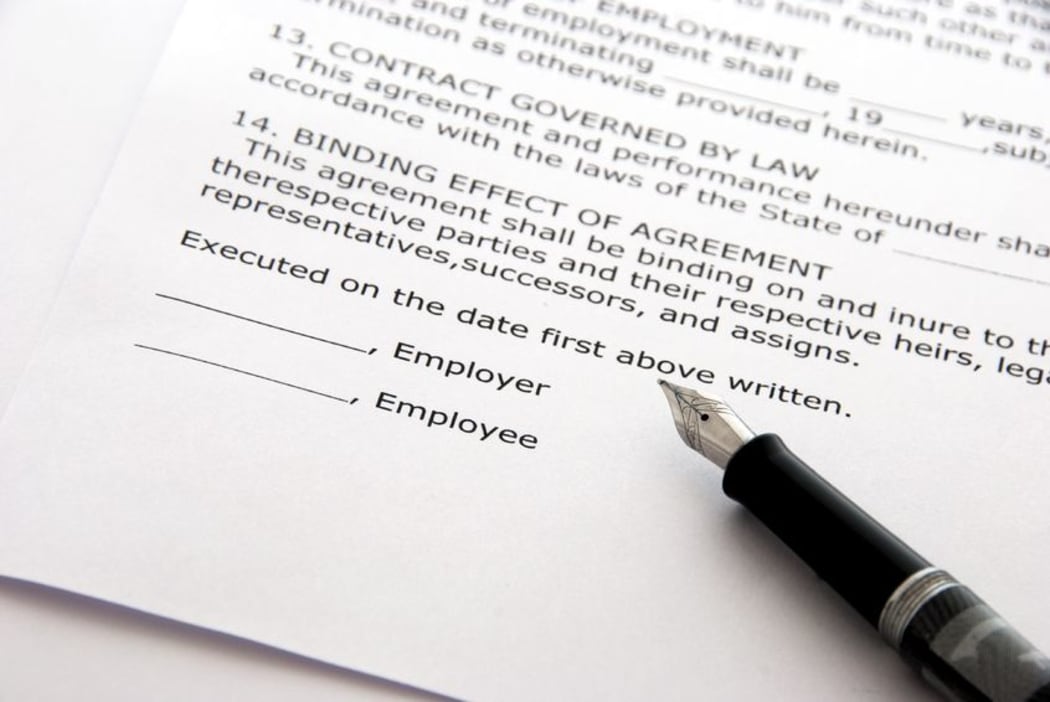The Fair Pay Agreement working group led by former Prime Minister Jim Bolger is divided over whether the system should be compulsory or not and has thrown the decision back to the government to make.

Photo: 123rf
Fair Pay Agreements would set minimum standards to lift wages and conditions across an industry or occupation.
While the majority of the working group was in favour of a compulsory model, employer representatives were clear they could not support what was drafted and would prefer voluntary participation.
But Council of Trade Unions president Richard Wagstaff, who was part of the working group, disagreed. He said if employers had an opt out option then they always would.
The compulsory system would ensure "bottom feeders" would not undermine the majority.

Richard Wagstaff Photo: supplied
Mr Wagstaff said there had been attempts to create industry standards in the past but they had been undercut by the "bottom feeders".
Business New Zealand chief executive Kirk Hope was also part of the working group, and says there will be backlash from employers and the public if it's made compulsory because of the damaging effects on the country's flexible labour market.
Mr Hope does not agree a voluntary system will give the power to employers.
He said the labour market was one of the most "responsive in the world" and making such drastic changes to industrial relations framework would lead to a sub-par market.
He said it was for Workplace Relations Minister Iain Lees-Galloway to get the changes over the line with its coalition and supply and confidence partners, New Zealand First and the Greens.
However, Mr Hope did point out the risks of moving to a compulsory model would be "most keenly felt by regional businesses".

Labour MP Iain Lees-Galloway Photo: VNP / Phil Smith
Mr Lees-Galloway said the government would take time to consider the working group's recommendations.
He told Morning Report that the compulsion recommendation was on the table.
Mr Lees-Galloway said the government was committed to growing the economy, improving incomes and working conditions for New Zealanders, focusing first on the wages and conditions of those who earn the least.
"New Zealand is out of step with the OECD both in terms of income inequality and productivity, with Kiwis working longer hours but producing less per hour."
He didn't rule out the compulsory model for employers just yet.
"What we want businesses competing on is innovation, the quality of their product, the quality of their service and being more productive. The question of compulsion has to be considered in that context," he said.
"The challenge if these are not made compulsory is 'how do you avoid penalising good employers who pay their staff well, who are prepared to adhere to the terms and conditions of a fair pay agreement when they're competing against someone down the road who's not meeting those conditions'.
"The next phase of work will require detailed policy consideration and consultation and we'll take the time to get it right."
Jim Bolger said employers shouldn't be scared of the word "compulsory".
He said in order to avoid the "race to the bottom", firms needed to be prevented from ducking responsibilities.
Mr Bolger said unfortunately, if some employers are given that opportunity, they would.





